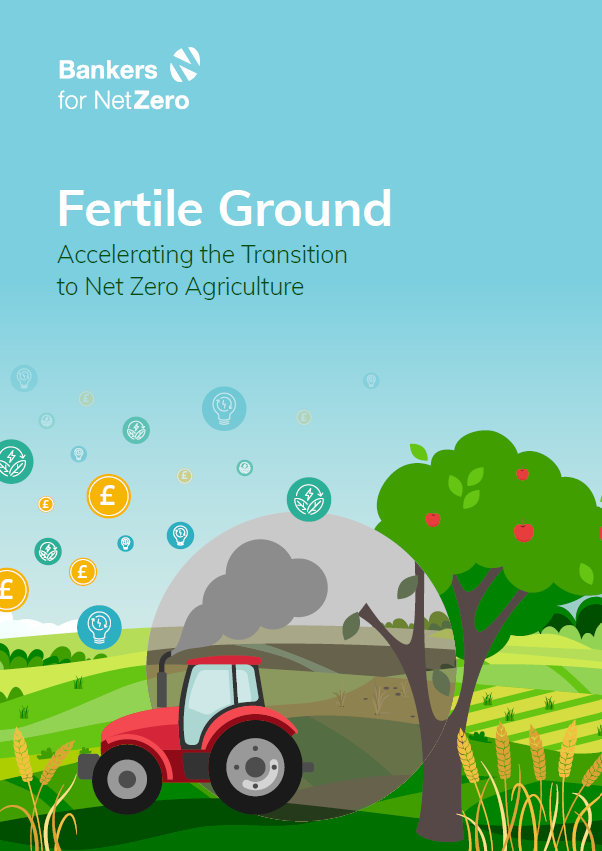Commitments Into Action: Impact Report 2024
Our inaugural Impact Report, “Commitments Into Action”, represents the first comprehensive review of our shared journey toward sustainable finance, highlighting the pivotal steps B4NZ have taken in 2024 to work with our ecosystem to support a resilient, net zero economy.
Considerations on SMEs and Transition Plans
In partnership with the Transition Plan Taskforce, ‘Considerations on SMEs and Transition Plans’ considers the challenges and opportunities of transition plans for SMEs and how future guidance can be developed to allow small businesses to effectively communicate their climate action plans and champion progress towards a climate-resilient future.
Fertile Ground: Accelerating the Transition to Net Zero Agriculture
Agriculture is responsible for 11% of total greenhouse gas (GHG) emissions in the UK, despite only representing 0.5% of GDP. UK banks can help accelerate progress towards net zero but need government to coordinate and clarify the direction of travel. This report from Bankers for Net Zero sets out clear policy recommendations to jumpstart this journey and to maximise sustainable growth opportunities in the agriculture and agribusiness sector.
The Retrofit Conundrum
The UK must urgently address emissions from its building stock to meet its climate targets. Residential buildings have seen limited progress in emissions reductions in recent years, which is in contrast to the significant progress made on the decarbonisation of power. However, as this report details, this can be addressed though policies that drive greater public-private collaboration and unlock private finance that support household retrofitting.
Mind the delivery gap: Achieving net zero through finance and policy
This report from Bankers for Net Zero argues that – at present – we face a ‘delivery gap’ whereby the tools and interventions for achieving both the bank and UK Government targets on emissions reductions are often nascent at best, and absent in other places. Addressing climate change will only be successful in the context of partnership between government, businesses, lenders/investors, as well as the consent of the public.
The Role of Banks in Reducing GHG Emissions of UK SMEs
A new report from Bankers for Net Zero, prepared by Smart Data Foundry, has revealed the crucial role banks can play in measuring and reducing the greenhouse gas emissions from their SME clients. The report highlights the results of an 8-week scoping exercise, which comprised of desk research, interviews with experienced academics as well as Bankers for Net Zero member banks, including HSBC UK, the British Business Bank and Santander.
Mobilising SMEs for Climate Action
The UK has 6 million small- and medium-sized enterprises (SMEs) – businesses with fewer than 250 employees. That means 99% of all UK businesses are SMEs, and the vast majority of those are micro-enterprises with fewer than 10 employees. Collectively, SMEs are responsible for 52% of the turnover of UK plc and they employ more than 16.5 million people – a quarter of the total population.
The Retrofit Revolution
Greening the built environment is one of the biggest economic, social and environmental opportunities for the UK over the next three decades. It will create jobs, stimulate economic growth, reduce fuel poverty, improve health and wellbeing – not to mention helping to eliminate the 40% of UK greenhouse gas emissions that are produced by the built environment sector.
Financing the Retrofit Supply Chain
All told, the built environment is responsible for approximately 40% of the UK’s carbon footprint.1 Housing alone accounts for 23%.2 For the UK to achieve its goal of reaching net zero emissions no later than 2050, an estimated 29 million existing homes will need to be retrofitted to reduce the emissions generated to heat and power those homes.

Commitments Into Action: Impact Report 2024
Our inaugural Impact Report, “Commitments Into Action”, represents the first comprehensive review of our shared journey toward sustainable finance, highlighting the pivotal steps B4NZ have taken in 2024 to work with our ecosystem to support a resilient, net zero economy.

Considerations on SMEs and Transition Plans
In partnership with the Transition Plan Taskforce, ‘Considerations on SMEs and Transition Plans’ considers the challenges and opportunities of transition plans for SMEs and how future guidance can be developed to allow small businesses to effectively communicate their climate action plans and champion progress towards a climate-resilient future.
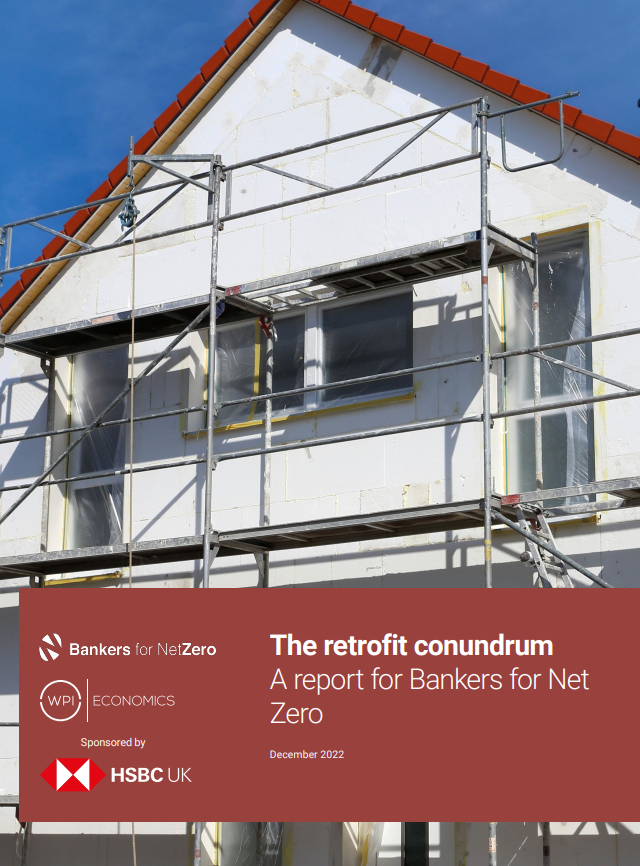
The Retrofit Conundrum
The UK must urgently address emissions from its building stock to meet its climate targets. Residential buildings have seen limited progress in emissions reductions in recent years, which is in contrast to the significant progress made on the decarbonisation of power. However, as this report details, this can be addressed though policies that drive greater public-private collaboration and unlock private finance that support household retrofitting.

Mind the delivery gap: Achieving net zero through finance and policy
This report from Bankers for Net Zero argues that – at present – we face a ‘delivery gap’ whereby the tools and interventions for achieving both the bank and UK Government targets on emissions reductions are often nascent at best, and absent in other places. Addressing climate change will only be successful in the context of partnership between government, businesses, lenders/investors, as well as the consent of the public.
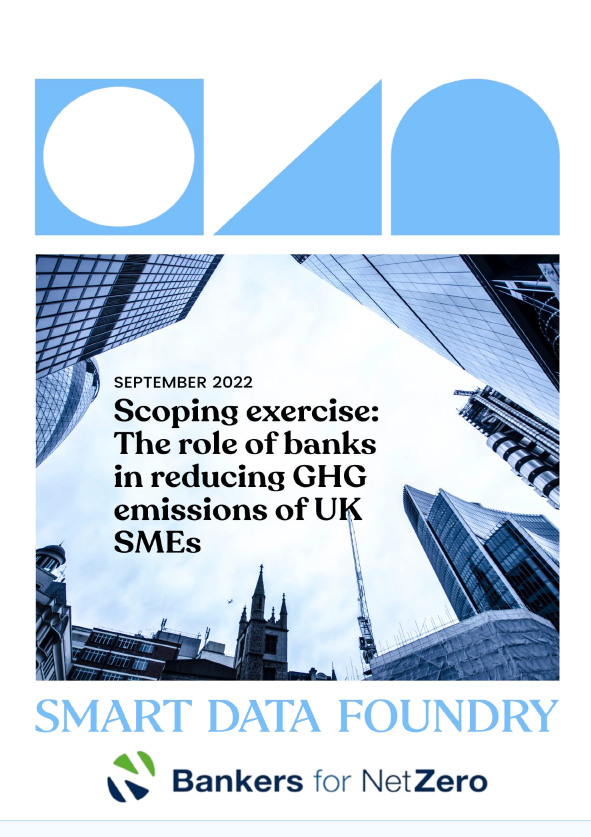
The Role of Banks in Reducing the GHG Emissions of UK SMEs
A new report from Bankers for Net Zero, prepared by Smart Data Foundry, has revealed the crucial role banks can play in measuring and reducing the greenhouse gas emissions from their SME clients. The report highlights the results of an 8-week scoping exercise, which comprised of desk research, interviews with experienced academics as well as Bankers for Net Zero member banks, including HSBC UK, the British Business Bank and Santander.
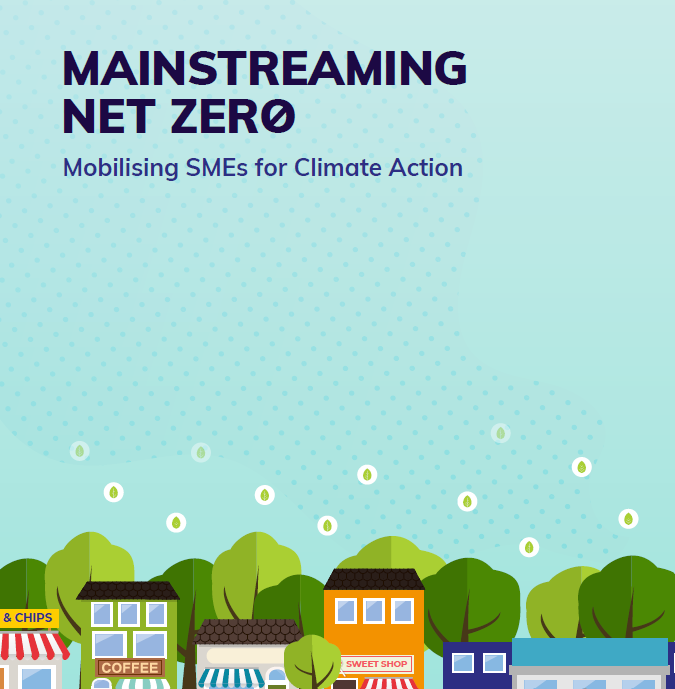
Mobilising SMEs for Climate Action
The UK has 6 million small- and medium-sized enterprises (SMEs) – businesses with fewer than 250 employees. That means 99% of all UK businesses are SMEs, and the vast majority of those are micro-enterprises with fewer than 10 employees. Collectively, SMEs are responsible for 52% of the turnover of UK plc and they employ more than 16.5 million people – a quarter of the total population.
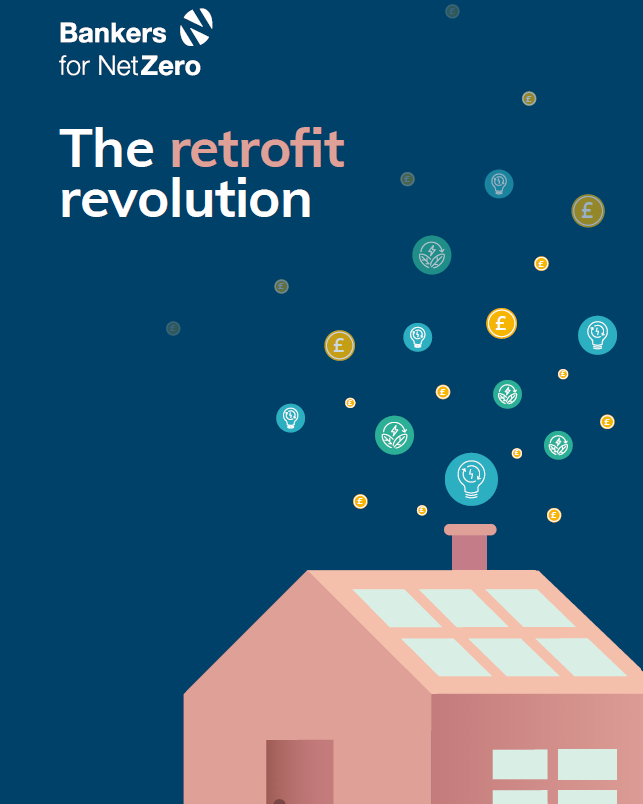
The Retrofit Revolution
Greening the built environment is one of the biggest economic, social and environmental opportunities for the UK over the next three decades. It will create jobs, stimulate economic growth, reduce fuel poverty, improve health and wellbeing – not to mention helping to eliminate the 40% of UK greenhouse gas emissions that are produced by the built environment sector.
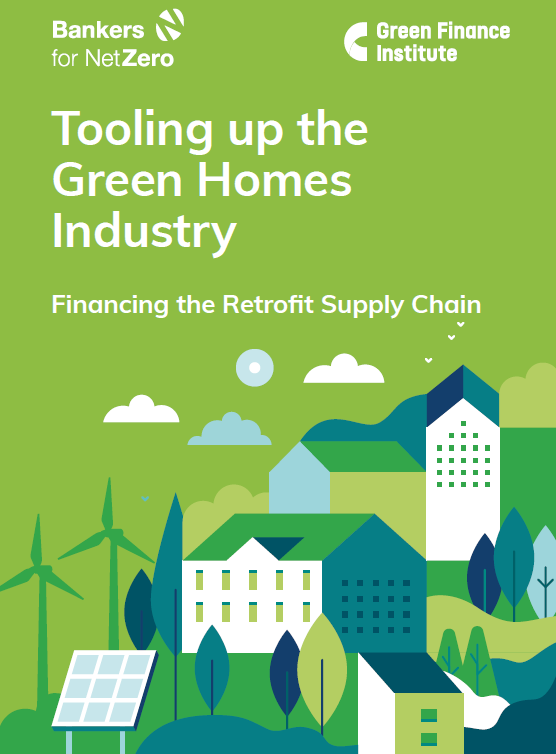
Financing the Retrofit Supply Chain
All told, the built environment is responsible for approximately 40% of the UK’s carbon footprint.1 Housing alone accounts for 23%.2 For the UK to achieve its goal of reaching net zero emissions no later than 2050, an estimated 29 million existing homes will need to be retrofitted to reduce the emissions generated to heat and power those homes.

